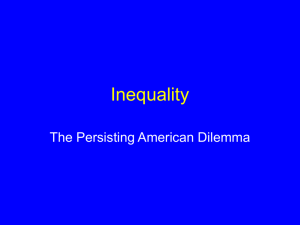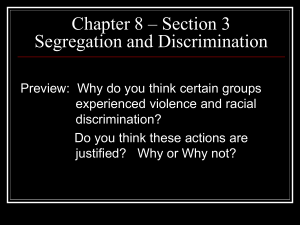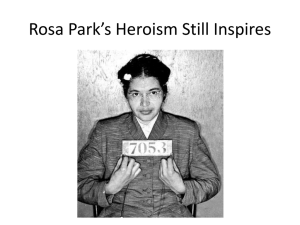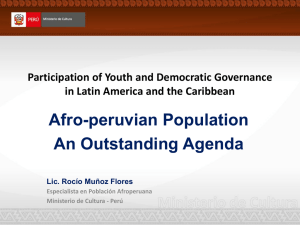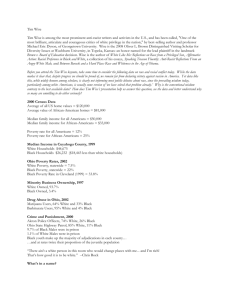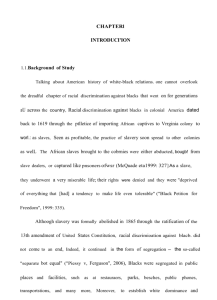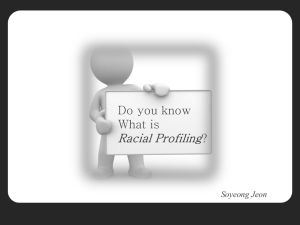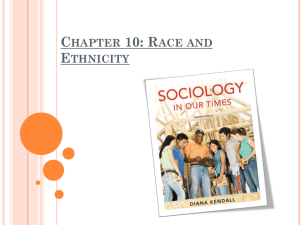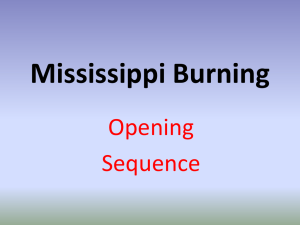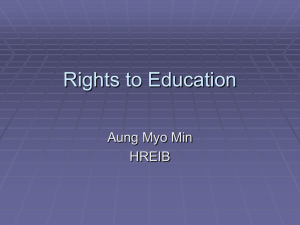Slides on the Economics of Discrimination
advertisement
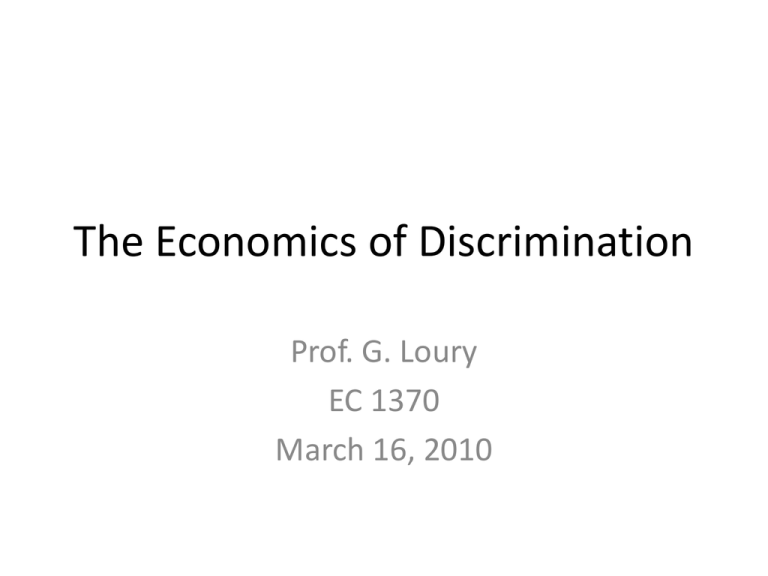
The Economics of Discrimination Prof. G. Loury EC 1370 March 16, 2010 EC 1370 Lecture Summary: The Economics of Discrimination, 3/16/2010 1. Standard economic theory (Becker) suggests wage discrimination cannot persist as an equilibrium phenomenon in competitive labor markets. 2. Gross wage and employment differences by race are large and persistent. 3. Attitude measures show declining but still persistent “racial prejudice”. 4. Measures of cognitive skills show large and persistent racial differences. 5. So, is the racial wage/employment gap due to discrimination or to skill differences between the groups? 6. We examine evidence from five recent studies which suggest that racial discrimination in the labor market remains a serious problem: a. Charles and Guryan document role of “racial prejudice” b. Urzua investigates role of cognitive and non-cognitive skills. c. Lang and Manove show that blacks of given ability get more education than do comparable whites. d. Vigdor shows racial wage convergence in US South largely due to improved quality of education for younger cohorts e. Pager use of “testers” reveals employers’ discriminatory choices. Per Capita Annual Hours of Employment for Native-Born Non-Hispanics Aged 25 to 59; 1968 to 2007 2,100 White Men PER CAPITA HOURS OF EMPLOYMENT 1,900 1,700 Black Men 1,500 1,300 1,100 Black Women 900 White Women 700 500 1968 1971 1974 1977 1980 1983 1986 1989 1992 1995 1998 2001 2004 2007 Median Wage and Salary Earnings for Native-Born Non-Hispanics Reporting Earnings $60,000 $55,000 $50,000 White Men $45,000 $40,000 $35,000 Black Men $30,000 $25,000 White Women $20,000 Black Women $15,000 $10,000 1968 1971 1974 1977 1980 1983 1986 1989 1992 1995 1998 2001 2004 2007 (Showing that racial prejudice still affects black/white wage gap, and that what really matters is degree of prejudice of the marginal, not the average employer.) Racial Attitudes of National Samples of Whites; General Social Survey, 1972 to 2004 100% 90% Would vote for a black candidate 80% Would vote for Open Housing Law 70% 60% 50% Believe blacks shouldn't push 40% 30% 20% Oppose interracial marriage 10% Believe whites have right to segregate their neighborhoods 0% 1972 1974 1976 1978 1980 1982 1984 1986 1988 1990 1992 1994 1996 1998 2000 2002 2004 Dependent Variable = ln(wages); “x” indicates “factors controlled for” 2008 (Showing the importance of non-cognitive skills when accounting for black/white wage differences.) (Documenting that, conditional on cognitive ability score, black US workers, male and female, obtain more education than do whites.) (Accounting for trends in black/white wage gaps in the South and establishing a key role for schooling quality in explaining the trend.) (Together with Pager (2003) using “tester” experimental data to establish the reality of racial discrimination in the labor market for young unskilled males in NYC and Milwaukee, emphasizing the debilitating effects for blacks of having a criminal record.) Similar Results with Milwaukee Data
